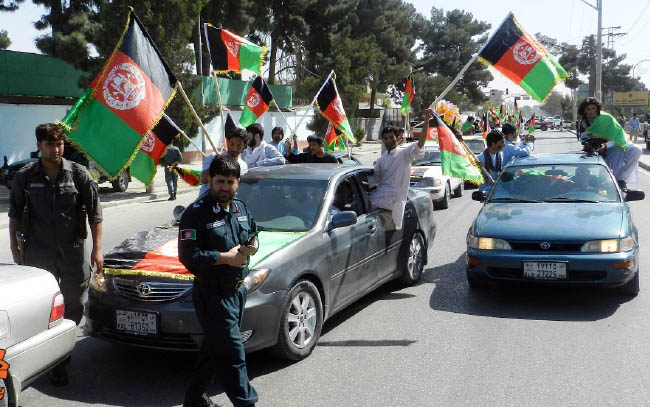Afghanistan left great political upheavals behind throughout the history. Both bloody wars and civil unrest violated the rights and dignity of our nation and inflicted heavy casualties upon Afghans. Dictatorial regimes, colonial powers and radical groups ruled Afghanistan with the barrel of gun. After all, Afghanistan has also been the hotbed of liberal and radical mindsets. Kings, Emirs and Sultans ruled Afghanistan under the mask of religious sanctity and claimed to implement caliphate. The last group which claimed caliphate was the Taliban – the current guerilla militants carrying out terrorist attacks and suicide bombings across the country.
A number of Afghan kings ruled the country under the aegis of religious slogans claiming to be the divine caliphs. They imposed their own mindsets on Afghan people at gunpoint and the rights and freedoms of men and women were trampled under the boots of their soldiers. Discrimination on the basis of caste, color, creed and gender was widespread and all individuals suffered in one way or another. The rights of women were one of the highly challenging issues in Afghanistan’s history within the different regimes. Although kings and their men were deeply engaged in carnal pleasure, women had to be restricted within the four walls.
On the other hand, King Amanullah Khan, who declared Afghanistan’s independence in 1919, sought to pioneer modern movement in the country and impose liberal ideas and practices upon people. In other words, he intended to change Afghanistan overnight in spite of the fact that traditional mindsets and custom ruled the country for long years. He liberated women, banned discrimination – mainly on the basis of gender – and approved the constitution in 1301 Afghan calendar in Jalal Abad Loya Jirga (Grand National Assembly) with the participation of 872 people including nation’s representatives and officials. Amanullah’s constitution was a milestone in the history of Afghanistan since it declared equal rights for all tribes and for men and women. He also established schools and sent a number of girls to Turkey for getting education.
His swift and sudden movement in the traditional society of Afghanistan backfired on him. Religious elements and traditional figures called his regime against the Islamic sharia and cultural values of the society. Even though he restricted his movement with the public sensitivity, the political turmoil continued against his regime and led to its fall – which was a great blow to the country.
With the fall of Amanullah’s regime, the ground was paved for civil unrest. Amidst political turbulence, religious elements and kings capitalized on the issue and triggered public sensation. Worst of all, the colonial power of the time applied the policy of divide and rule with fueling tension and prompting people to fight against one another under religious terms. To cut short, the liberal mindset of Amanullah, who was influenced by the idea of Afghanistan’s intellectual and his father-in-law Mahmud Tarzai, was replaced by fundamental mentalities.
The political turmoil continued with deadly wars and civil conflicts which led to colossal destruction and heavy casualties. In 1996, the Taliban claimed to establish Islamic Emirate and implement the divine rule in the divine land. Similar to former kings, the Taliban’s founder Mullah Omar announced himself Emir-ul-Momineen (the commander of the faithful) and launched a war against Mujahedeen. The civil conflict was compounded with the Taliban’s regime and too much blood was shed. Afghan men, women and children underwent indescribable pain and sufferings. Religion was again exploited within the Taliban’s regime which imposed its radical mentality on it.
Following the 9/11 terrorist attack on Twin Towers in the US, the Bush administration attacked on Afghanistan which led to the collapse of the Taliban’s regime. There was a pregnant silence when the Taliban organized themselves and resorted to militancy against Afghan government and foreign troops.
By and large, Afghan nation celebrated the establishment of a democratic government following the Bonn Conference, held in 2001, and the approval of the constitution in 2004. The constitution was approved on democratic bases and recognized the equal rights and dignity for all Afghan tribes regardless of their racial, religious and factional backgrounds.
However, peace and stability still remain a dream for Afghan nation. Neither the establishment of a democratic government nor “war on terror” put an end to militancy or protected the rights and liberty of Afghans. The nation celebrated Afghanistan’s Independence Day in 19 August, but Amanullah’s reign seem to be nostalgia for them. In short, the Independent Day was celebrated while people are victimized by terrorist groups on large scale and there is fear and disappointment in the air. It is hoped that Afghan nation celebrates a real independence; i.e., our rights and freedoms are protected and our territorial integrity is respected.
Home » Opinion » Lacking the True Soul of Independence
Lacking the True Soul of Independence
| Hujjatullah Zia

